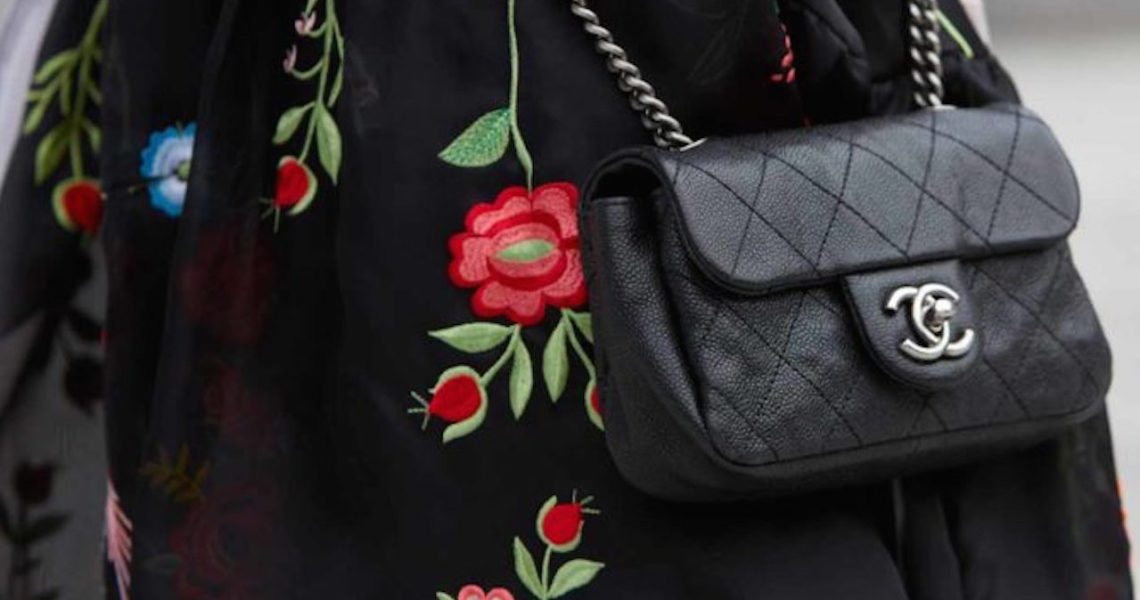An ongoing lawsuit between luxury fashion brand Chanel and What Goes Around Comes Around, a fashion boutique and online retailer, reached its conclusion on Tuesday with the court ruling in favor of Chanel on all counts and awarding the brand $4 million in damages. Additional damages will be considered in post-trial briefs from both sides.
The conflict between the two entities originally began in 2018 and has centered on WGACA’s ability to sell and guarantee the authenticity of the Chanel goods it was selling on resale. Chanel, as it has with other resellers like The RealReal, contested the idea that anyone other than Chanel can guarantee that a sold item is a real Chanel product. The lengthy conflict also came to include WGACA’s use on social media of quotes from Chanel founder Coco Chanel and its use of discount codes such as COCO10 for 10% off. Chanel has alleged that these instances create a false perception among consumers that WGACA and Chanel are officially affiliated.
These types of legal conflicts often hinge on whether a reasonable customer may genuinely be confused about the relationship between the two brands. While boutiques and resale stores have a legal right to sell pre-owned goods without the permission of the original manufacturer, companies like WGACA and The RealReal have gotten into trouble based on their marketing.
WGACA’s argument about the Coco Chanel quotes, for example, is that one cannot copyright statements and it, therefore, has a right to use the quotes. The fact that Chanel is not actually suing for copyright infringement supports that claim.
Yet in court on January 31, Chanel’s legal team, along with David Franklyn, the director of the McCarthy Institute for IP and Technology Law and an expert witness for Chanel, argued that genuine confusion among consumers did exist. Franklyn conducted a survey of more than 200 customers asking them questions about luxury goods and shopping, including whether they believed the products available from WGACA were officially endorsed by Chanel. The answers to one question varied. When asked, “What does WGACA do?” 23% of the respondents said “makes handbags.” That’s not what WGACA does and bolsters Chanel’s case for confusion.
However, as WGACA’s lawyers pointed out, another formulation of the same question turned out results supporting WGACA’s side of the argument: When respondents were shown an image of a Chanel bag available from WGACA and asked who made the bag, 93% said Chanel.
Chanel was at one point the second biggest-selling brand for WGACA, although, according to testimony from WGACA CEO Seth Weisser, that’s no longer the case. But Chanel is still a valuable brand, with a profit margin of around 35-40% for WGACA. During his testimony, Weisser also revealed that there were several Chanel products sold at WGACA whose origin was unconfirmed because they were believed to be gifted from the brand to the owner, rather than purchased. Weisser denied there was any problem with this arrangement.
“I believe if the consumer has the desire to buy something and we can buy it through legal acquisition, that we have the right to sell it,” he said in court.
After the verdict on Tuesday, Weisnner told Glossy he was disappointed in the verdict, adding that, “The case is not over.”
“The court has yet to hear post-verdict motions,” he said. “We will have further comment after the case is final, and we look forward to the post-verdict motions as we explore our legal options.”
And Weisser denied that the verdict proves that WGACA sold counterfeits.
“WGACA has always had a rigorous authentication process and has never in the history of the company sold a non-genuine or counterfeit product,” he said. “Today’s verdict was not about not selling a counterfeit; it was about WGACA selling items which were voided in Chanel’s database. Without any access to this database, the resale industry would not know the status of these serial numbers. We continue to stand by our 100% authenticity guarantee.”
Chanel’s challenge to the idea that resale platforms can act as an authority on the goods they sell is an important one, particularly for luxury resale which is a booming industry, reaching nearly $40 billion in the U.S. last year. Chanel’s other major lawsuit, which also began in 2018, is against The RealReal and is still ongoing. It covers much of the same ground, including whether The RealReal can guarantee the authenticity of Chanel products.
In recent years, more luxury fashion brands, including Oscar de la Renta, have launched their own resale channels, rather than work with existing third-party platforms. Not only does that allow the brands to make money off of their own products’ second lives, but it also lets them be in control of how those products are presented.




